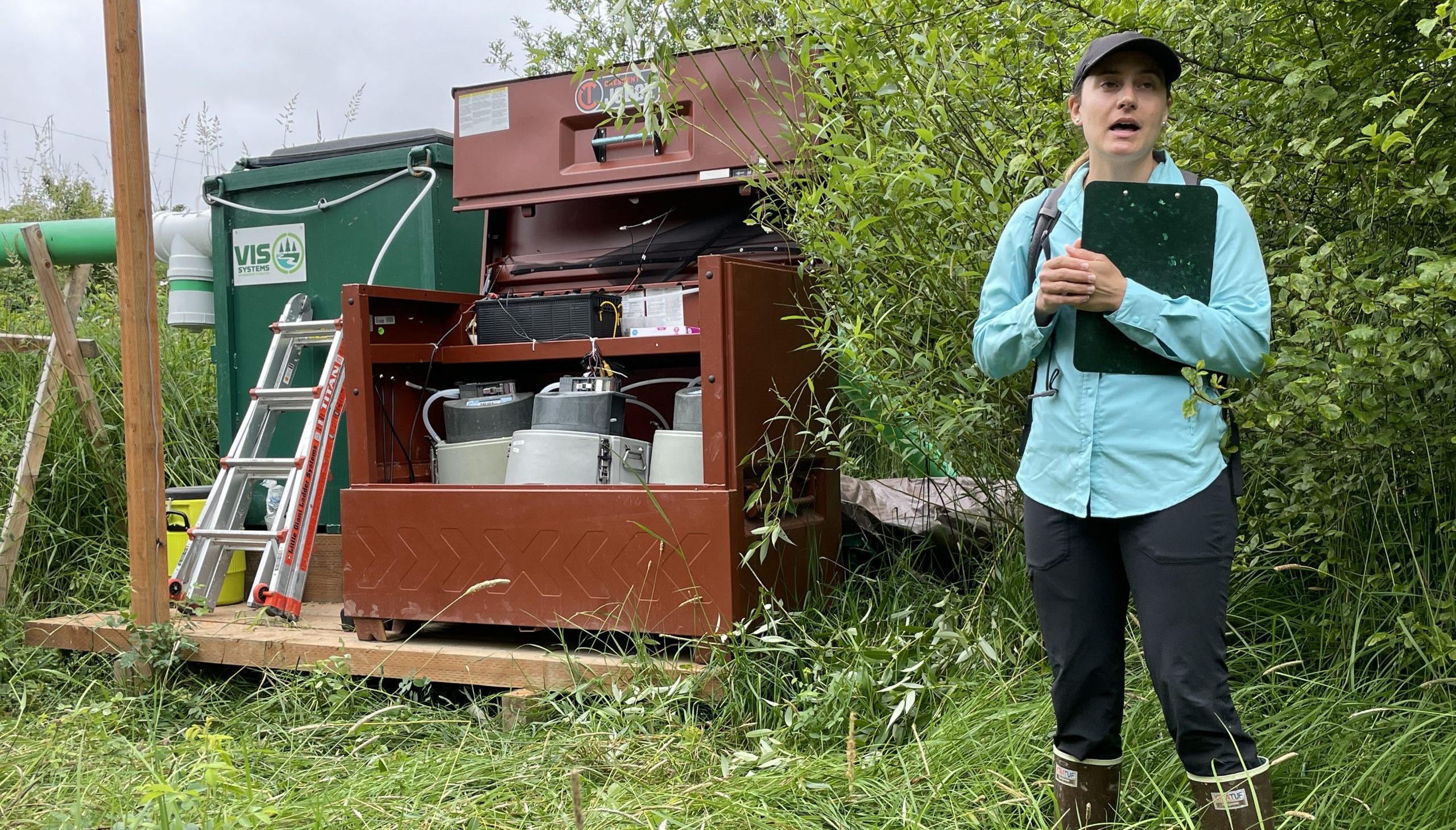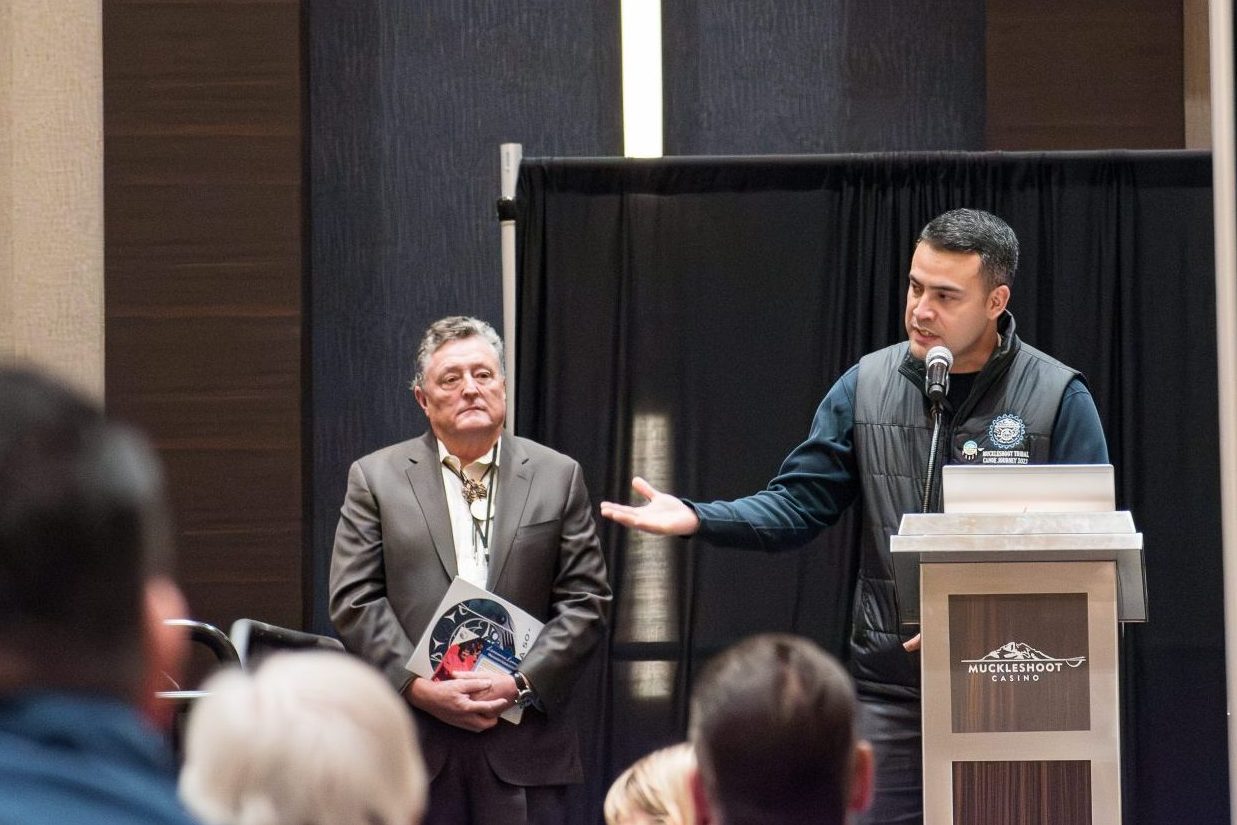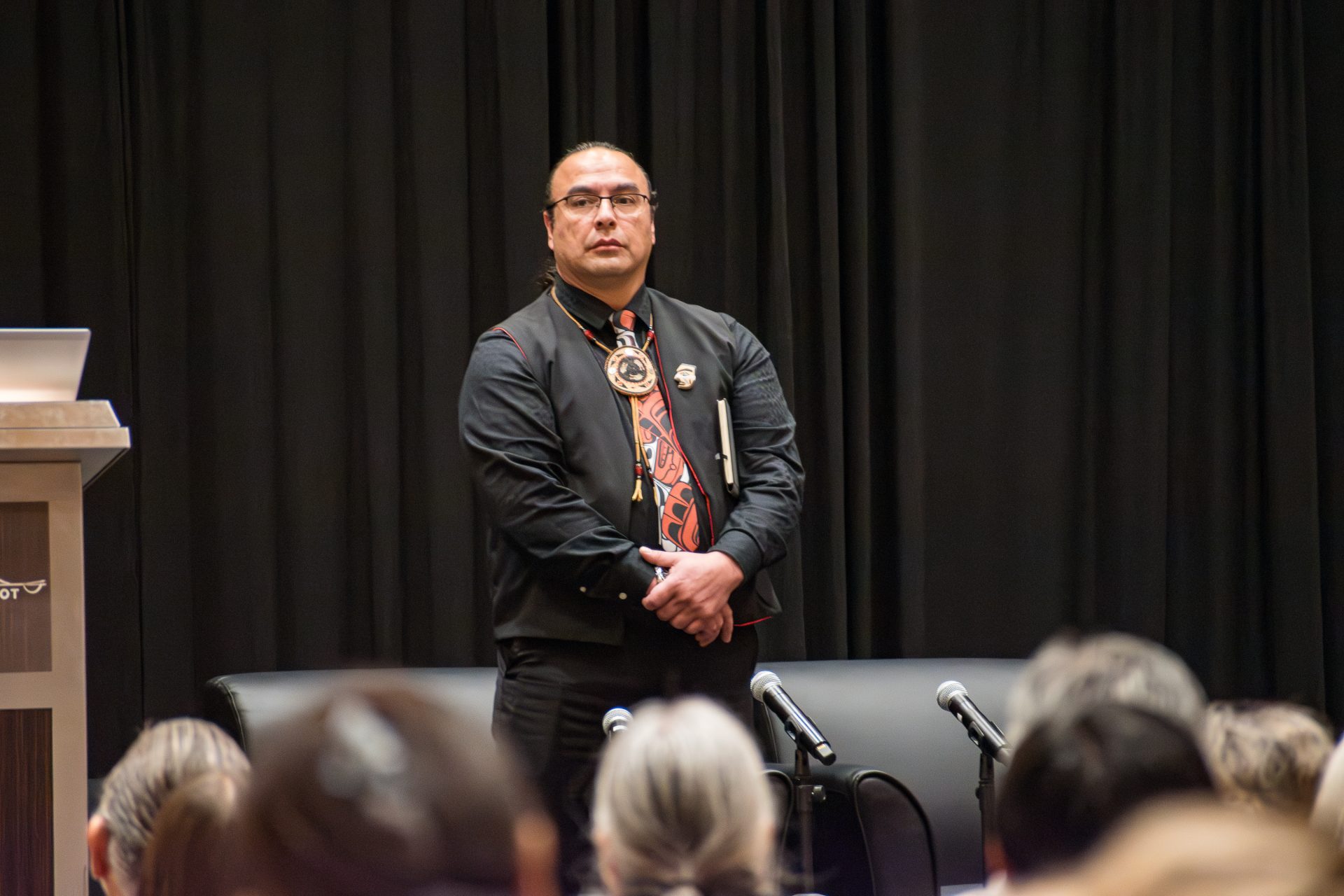A pilot project by the Nisqually Tribe and partners may eventually make streams safer for fish and other aquatic creatures.
The tribe partnered with Long Live the Kings, Cedar Grove Composting and others to test a mobile biofiltration unit, meant to filter harmful materials from stormwater. The unit, which was operational from the beginning of this year until July, filtered water from three rain events near Highway 7 west of Eatonville.
“Our interest is trying to find ways to ensure stormwater road runoff is as clean as possible,” said Nisqually salmon recovery program manager Chris Ellings. “We’ve known for a long time that stormwater is bad. There are so many different chemicals and heavy metals: copper is dangerous for fish and other aquatic organisms; brake pads have asbestos and other chemicals. It’s been on our radar for a long time.”
He said concern over stormwater was sharpened with the recent discovery of the dangers of 6PPD, a chemical used to prevent tires from breaking down too quickly. A team of Pacific Northwest–based scientists discovered that the chemical is deadly to coho when stormwater runoff reaches urban streams.
“It’s incredible to find a silver bullet that’s causing direct mortality. It’s definitely been a driver to find interim solutions until the tire industry can develop alternative chemicals,” Ellings said.
For one potential solution, the tribe partnered with Long Live the Kings, a Seattle-based environmental nonprofit, and Cedar Grove Composting, an environmental solutions company that processes 350,000 tons of residential and yard waste a year and helped develop the biofiltration system.
The system was installed on land purchased by the Nisqually Land Trust near Ohop Creek. It’s a crucial area for the tribe, which has worked with partners for years to rejuvenate the once-thriving rearing and spawning habitat for several species of salmon, including coho.
Ellings called it the “perfect spot” to test the unit.
“We’re partners in the ownership, it’s in a salmon recovery priority area, we can isolate it—It’s a great spot to pilot it,” he said.
A pair of large boxes collected samples and filtered stormwater from three locations during three rain events. Samples will be tested to see how effective the unit performed at leaching out harmful materials such as metals like copper and zinc and chemicals including 6PPD.
Full results of the biofiltration unit’s effects on stormwater are expected as early as later this fall.
Ellings said the unit’s eventual use will be determined by its effectiveness—but is excited about this effort.
“Stormwater’s nasty stuff, and any time we can clean the water in ways like this we should,” he said.
“We are committed to protecting as much of the Nisqually watershed as possible, and this is another important way of protecting our water for the salmon that depend on clean water,” said Willie Frank III, chairman for the Nisqually Indian Tribe.
Additional project partners include Fremont Analytical, the Nisqually Land Trust, Herrera Environmental Consultants, University of Washington at Tacoma, Washington State Department of Transportation and Washington State University at Puyallup.
In addition to the tribe, funding for the project came from Puget Sound Stewardship and Mitigation Fund, Royal Bank of Canada, Sustainable Path Foundation and Washington Sea Grant.
Above: Ashley Bagley, project manager with Long Live the Kings, gives a tour of a biofiltration pilot project that resulted from a partnership with the Nisqually Tribe and others. The project is intended to filter harmful materials from stormwater, making streams safer for fish. Story and photo: Trevor Pyle





